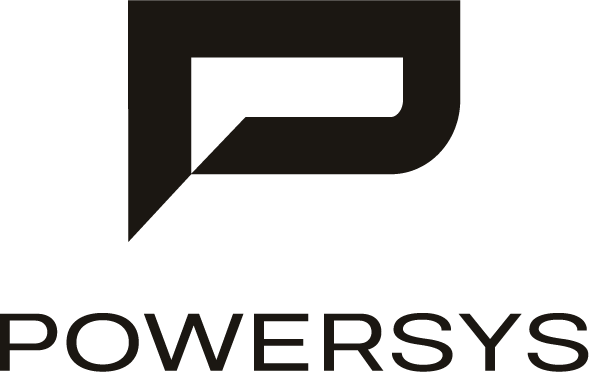Place: Online – Time zone : CEST
Date: September 22nd – 24th – October 1st – 2nd 2020 from 9:00 am to 13:30 pm
Fee: Industry : 900€ /pers
Education : 500€ /pers
> Register Now
Objectives:
The AC-DC front-end converter is a critical element in electric-vehicle battery chargers, motor drives, power supplies, aerospace active rectifiers, variable speed diesel generators, etc.
The main objective of this course is to study theoretical aspects and practical aspects of the design of power factor correction (PFC) converters. This type of AC/DC rectifiers have to comply with strict specifications regarding the current harmonics injected to the grid, and more recently with some other Grid-Codes requirements.
The course is designed to provide fundamental knowledge about the design of the power stage (semiconductors, inductors, EMI filters and capacitors selection) and the control system (analog and digital). Regarding the control system, it will be covered from basic analog IC controllers (CCM and BCM) to sophisticated System on Chip (SoC-FPGA) implementation.
This training covers the basis of each topic but it can be considered as mid-level to high-level course focused in the following specific objectives:
Power stage design
- To provide a practical comparison of the main PFC topologies, for single-phase and three-phase AC-DC converters.
- To get solid fundamentals about the power losses calculation in the switches, as indispensable tool to design the converter. Different switches alternatives will be also shown.
- To show an efficient method to design inductors for PFC converters.
- To show how to obtain a correct selection of capacitors for PFC converters.
- To provide an efficient methodology to design EMI filters for PFC converters.
Control design
- To show efficiently how design the analog control for single-phase applications in both conduction modes CCM and BCM. In each case it will be considered the most common used IC controller.
- To show how to move from analog control to digital control.
- To show the different grid-synchronization techniques under balanced and unbalanced conditions.
- To provide practical knowledge about the control of the main three-phase converters: boost rectifier, buck rectifier and Vienna rectifier. L and LCL filters are covered.
- To provide a complete set of practical reference designs (PSIM simulation examples, SmartCtrl design examples) for the main PFC applications.
- To show the most effective, current and future, digital platforms to implement the PFC control.
Audience description:
The e-training course is recommended to everybody interested in the theoretical and practical design aspects of the power stage and analog / digital control applied to the main PFC applications:
- The practicing engineer (firmware and power hardware engineers) will be given with the physical meaning and efficient explanations about the power stage design, modeling and control problem.
- The university student (Master and PhD degrees) will find easy-to-follow mathematical developments not always covered in the text books.
- Instructors and university professors will find a different approach for their explanations as well as an interesting set of simulation reference designs.
- The power hardware and control expert are also invited to participate in a discussion-space to share practical experiences on specific problems.
Methodology:
- The focus is placed on Concepts
The explanations are focused on the concepts and physical meaning. Mathematical developments are also included as reference materials in annexes.
Controller design using SmartCtrl + PSIM simulation to test the results.
A large number of examples are used to show training explanations.
Exercises are proposed to be developed by the audience during the training.
SmartCtrl files and PSIM files are provided in advance to develop efficiently the examples and exercises.
Training information:
- 4 days, 4 hours per day
- July 22, 23 (4 hours per day)
- July 29, 30 (4 hours per day)
- Language: English
- Temporary PSIM license (to modify if necessary): PSIM temporary licenses will be provided for the duration of the course.
> Register Now
Instructor
- First name: Antonio
- Last name: Lázaro
- Organization: Carlos III University of Madrid / Power Smart Control S.L.
- Job function: Professor / Technical Director
- Short biography
Antonio Lázaro was born in Madrid, Spain, in 1968. He received the M. Sc. in electrical engineering from the Universidad Politécnica de Madrid, Spain, in 1995. He received the Ph. D. in Electrical Engineering from the Universidad Carlos III de Madrid in 2003.
He has been an Assistant Professor of the Universidad Carlos III de Madrid since 1995. He has been involved in power electronics since 1994, participating in more than 80 research and development projects for industry. He holds 10 patents and software registrations and he has published nearly 140 papers in IEEE journals & conferences. His research interests are high-power DC-DC Converters, Power Factor Correction (PFC) Rectifiers, AC-DC inverters (railway and grid-connected applications), modeling and control of switching converters and digital control techniques.
Dr. Lazaro has originated and leaded the development of the Software SmartCtrl. He is the co-founder and technical director of Power Smart Control S.L. a spin-off company of Carlos III University of Madrid focused on the development of SmartCtrl and hardware high added-value control solutions for power electronics (SoC-FPGA control, HIL systems, real-time FPGA variable logging, automatic test-benches, etc.).
General conditions for PSIM Training
Please register as early as possible if you plan to attend this e-training. As soon as the minimum of participants is reached, POWERSYS will confirm the course.
Cancellation can be made according to POWERSYS’ General Conditions: In case you cannot attend the workshop after having registred, please contact us as soon as possible at marketing@powersys.fr Please note that POWERSYS will not reimburse any expenses if the e-training is not confirmed. We recommend you to make your arrangements once the e-Training is confirmed.
For French participants: POWERSYS est enregistré en tant que prestataire de formation (auprès du Préfet de la Région Provence-Alpes-Côte d’Azur sous le numéro 93 13 13256 13). Une convention de formation peut être établie sur demande avant la date de formation.
Contact for any additional information: Please feel free to contact us for any further information marketing@powersys.fr




